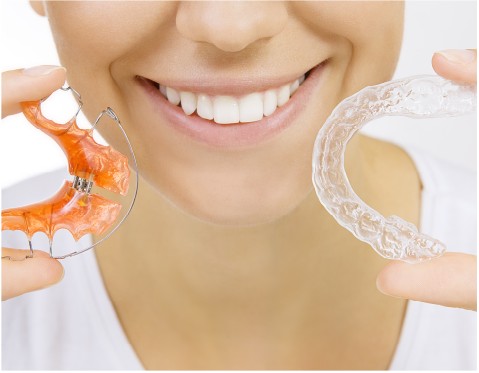The temporomandibular joints, called TMJ, are the joints and jaw muscles that make it possible to open and close your mouth. Located on each side of the head, your TMJ work together when you chew, speak or swallow and include muscles and ligaments as well as the jaw bone. They also control the lower jaw as it moves forward, backward and side to side. People who grind their teeth can sometimes develop a serious problem with their jaw which can adversely affect the teeth, gums and bone structures of the mouth if left untreated. People with temporomandibular joint disorders (TMD) often have a clicking or popping sound when opening and closing their mouths. Such disorders are often accompanied by frequent headaches, neck aches, and in some cases, tooth sensitivity. Some treatments for TMD include muscle relaxants, NSAIDs, biofeedback, or wearing a small plastic appliance in the mouth during sleep. Minor cases of TMD involve discomfort or pain in the jaw muscles. More serious conditions involve improperly aligned joints or dislocated jaws.
Occlusal guards
Occlusal guards are removable devices that fit over the teeth and are used to help prevent the wearing down
of teeth during sleep due to night time grinding and clenching by creating a barrier. Sometimes these guards are also worn during the day if the patient's problems are more serious than just the average teeth grinding problems. Custom-made occlusal guards (also known as nightguards) tend to be the most effective since they are designed to match your specific tooth and oral anatomy. Nightguards are recommended for patients who suffer from bruxism or teeth grinding, or clenching. Teeth grinding can lead to a number of dental issues such as premature wear and tear, enamel erosion, chips, fractures, and TMJ disorders. If you find that you wake up with a headache or a toothache, or you have jaw joint pain, or if during a routine dental examination your dentist notices that your teeth have been ground down to a more flattened surface than should be normal, you may be prescribed an occlusal guard. Oftentimes, your teeth may start loosening and you will feel pain in your gums because of clenching your teeth too much. These guards do not treat the problems, but they are a preventative measure against more serious problems caused by long-term teeth grinding. If these symptoms are not taken care of, more dental problems, such a fractured teeth and tooth loss, will likely occur and will be much more costly in the long run than investing in an occlusal guard early-on.



